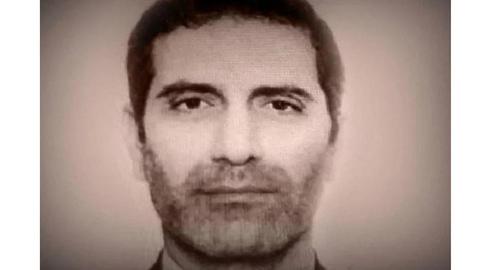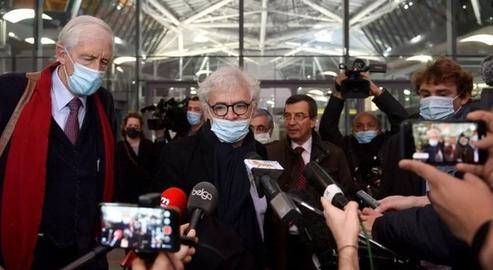Last week a Belgian court sentenced the disgraced ex-Iranian diplomat Asadollah Asadi to 20 years in prison for plotting to bomb a People’s Mojahedin Organization (MKO) meeting in Paris. The MKO campaigns against the leadership of the Islamic Republic of Iran. The court concluded that Asadi, the former third secretary of the Iranian embassy in Vienna, was an undercover agent of the Iranian Intelligence Ministry.
In January 2019 – a few months after Asadi’s arrest – the European Union designated the Directorate for Internal Security of the Intelligence Ministry a terrorist organization for its alleged role in the operation, and imposed fresh sanctions. Some Iranian observers did not believe that the Directorate for Internal Security could have been involved in such a plot, and indeed, proponents of the Iranian government claimed the EU’s decision was based on “mistaken” or even “fabricated” information.
The documents show, however, that during the previous peak period of armed operations by the Ministry of Intelligence in Europe in the early 1990s the Directorate for Internal Security always took the lead. Dealing with Iranian opposition groups was uniformly classified as being the purview of the Directorate for Internal Security, and furthermore, they could be targeted anywhere in the world.
The Mykonos Restaurant Assassinations
Iran's Intelligence Ministry has been involved in many foreign operations since its inception, and its name has been mentioned in the context of numerous assassination cases worldwide. In September 1992 the secretary-general of the Kurdistan Democratic Party of Iran, Sadegh Sharafkandi, and three of his associates were assassinated in Berlin’s Mykonos restaurant.
In 1997 a German court issued an international arrest warrant for Iran’s intelligence minister at the time, Ali Fallahian, after finding the suspects in the Mykonos assassinations guilty and as having acted on the ministry’s instructions.
Meanwhile, between 1991 and early 1997, Saeed Emami had served as deputy minister for internal security. He was also accused of co-orchestrating the Mykonos operation and sending weapons to Europe; in March 1995, an Iranian ship carrying mortars had been seized in Belgian waters. Even Iranian government officials made references to Emami’s role in both cases.
In his book Iran and the United States: The Broken Past and the Road to Reconciliation, Hossein Mousavian, Iran’s ambassador to Germany at the time of the Mykonos assassinations, writes that after the incident Emami was sent to Berlin by Fallahian and talked "behind closed doors with the highest German officials".
Mousavian goes on to recall the circumstances that led the German court to finally summon Iran’s minister of intelligence over the Mykonos affair (although Fallahian himself did not appear in court): "In March 1996, an Iranian ship named Iran-Kolahdouz, which was carrying cargo to Munich, was inspected by police and security forces in Antwerp, Belgium. A shipment of powerful mortars was found in it... [As a result], the German government decided to remove restrictions on the investigation into the Mykonos assassinations."
Former Iranian President Akbar Hashemi Rafsanjani refers to the same incident in his memoir. He claims he was surprised when he found out: "These people sent missiles to Europe to hit the Monafeghin [MKO] without my knowledge." Rafsanjani added that after learning of the incident he punished Emami as an "administrative offender" and removed him from the post of deputy security minister.
In an indirect reference to Emami's role in the Iran-Kolahdouz ship story, Ghorban Ali Dori Najafabadi, Iran’s intelligence minister at the time of the 1998 “Chain Murders” of dissidents, writes in his memoirs: "[Emami] was deputy security minister for six and a half or seven years, and due to some issues that took place abroad and for which he was responsible or accused, he was removed from that position and appointed as deputy minister for investigations." Emami later died in prison in 1999, after being accused of orchestrating the Chain Murders.
Dori Najafabadi's account affirms the dismissal of Emami was due to his role in overseas operations, although it also reveals that the maximum punishment for him was to be transferred from one deputy ministerial position to another. Notably, Dori Najafabadi also goes on to say that when he became minister, because of the sensitivity, he removed Emami from his role as deputy minister and gave him a "consultant position".
Even Fallahian, in a conversation in November 2000 about Massoud Keshmiri, the perpetrator of the August 30, 1981 bombing of the prime minister’s office and Mohammad Reza Kolahy, the perpetrator of a bomb attack on the Islamic Republic Party on June 28 that year, said Emami was looking for those two people in Europe. "I think Keshmiri is in Europe," Fallahian said. "Even Saeed Emami found their homes in Germany. He had the motivation."
Government or “Rogue Elements”?
EU officials’ assertions that Iran backed at least four terrorist operations in Europe between 2015 and 2018 (two in the Netherlands in 2015 and 2017, and two in France and Denmark in 2018), suggest that the Intelligence Ministry has recently resumed activities thought to have ended for good after the Mykonos trial.
After the Directorate for Internal Security was placed on the EU’s designation list, Ali Majedi, the former Iranian ambassador to Germany, said: "The Europeans have provided documents on the allegations that we cannot easily refute... Some people think that by taking arbitrary measures they can serve the interests of the country.”
Earlier, Kamal Kharrazi, chairman of Iran's Strategic Foreign Policy Council (which operates under the Supreme Leader), had also admitted such a possibility in response to a question about the terrorist activities of Iran's "rogue elements" in Europe. In an interview with France 24 on November 15, 2018, Khrrazi said: "Certainly, there may be elements planning the deterioration of relations - even inside Iran."
Iran, the official government newspaper, has also implicitly confirmed the statements of European officials regarding the Islamic Republic's overseas operations. "If there were such a connection,” an editorial on November 2, 2018b read, “which is definitely beyond the knowledge of the country's officials, then serious and decisive action must be taken to burn the roots of these arbitrary behaviors."
In its editorial, Iran then added the new operation looked similar to those of the Chain Murders, and added: "It has been heard that the president has made his final decision on this issue and we must see the results in the coming days." Despite the fact that the editorial was considered exclusive news about Hassan Rouhani, in the following days, weeks and months there was no news of any "results". The EU's account of the Ministry of Intelligence's overseas operations appears to be well-founded, but these activities are endlessly attributed to "rogue" security forces by Iran.
Related coverage:
Iranian Diplomat Jailed for 20 Years Over Foiled Bomb Plot
Who is the Iranian Diplomat/Terrorist Mastermind of the Pizza Bomb?
Verdict on Iranian Diplomat to be Issued in Belgian Court Next Week
Unprecedented Remarks by an Iranian Diplomat about Terrorist “Rogue” Elements in Europe
visit the accountability section
In this section of Iran Wire, you can contact the officials and launch your campaign for various problems



























comments